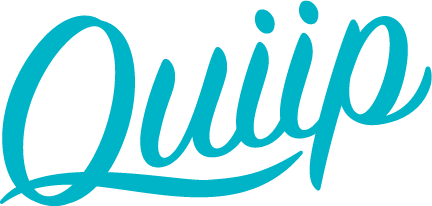Freedom of Speech and Social Media
It’s been a big year for the freedom of speech discussion. Mack Horton spoke out against doping in sport, pundits continue to debate Section 18C of the Racial Discrimination Act and US conservative Milo Yiannopoulos was accused of launching a malicious campaign against Leslie Jones. While Twitter took a stand by banning Yiannopoulos, many have criticized the intervention of social media platforms in what they deem as their right to express opinions freely.
With millions of Australians using a social platform to communicate daily, it’s time for a refresher on our country’s freedom of speech stance, and look at how can organisations can encourage expression whilst minimising risk.
State of Play in Australia
Let’s clear up the misconceptions regarding Australia’s position on free speech. Unlike the US, Australians do not have a constitutional right to freedom of speech. Australia is a signatory to the International Covenant on Civil and Political Rights, which states in Article 19 “Everyone shall have the right to freedom of expression.” Despite several attempts, this provision has not been passed as legislation or an Act of Parliament, making it unenforceable in Australian courts. While the High Court has held that there is an implied freedom of political communication, this acts as freedom of government restraint rather than conferring an individual right.
There are also laws that specifically prohibit certain types of public speech – the criminal code, anti-discrimination laws, defamation laws, privacy laws and intellectual property laws.
It’s widely known that brands cannot make false or misleading claims while marketing, which includes websites and social media channels. Where it gets risky for brands in social spaces is the obligation to control not only your messages, but also those of your community. A 2011 court case concluded that companies can be held responsible for fan posts and testimonials on all social platforms if employees knew about them but did not remove them.
To paraphrase The Castle, “the vibe” is that Australian citizens do have freedom of political and social expression without executive interference – as long as you’re not using that freedom to harm others.
Terms of Service
Every social company has it’s own terms and conditions associated with use of their service, and the power to remove you for violations. Platforms such as Twitter, Facebook, YouTube, Instagram, Tumblr and Snapchat all prohibit hate speech, intimidation and bullying. Social media is not an open range in the Wild West. In order to express yourself in this corral, you have agreed to abide by their rules.
Having said this, your mileage may vary. In the case of Milo Yiannopoulos, there were claims of arbitrary censorship. In reality, the high profile outcry bound Twitter to enforce violations of their Code of Conduct. He was banned and stripped of his verification tick. Instagram recently came to the aid of Taylor Swift, deleting hundreds of snake emojis posted in the wake of her Kimye dispute. However most platforms are sluggish in their approach to vanquishing trolls and protecting ordinary citizens, even with in-built reporting functions, placing the burden back on account holders.
Freedom of Consequences
The simple truth is that freedom of speech does not mean freedom from consequences. Criminal codes extend to online behaviour, which means it’s still illegal to threaten, harass, stalk or incite violence against a person. Furthermore, your actions online may have repercussions in your personal relationships, place of employment, educational institution and other associations. That’s right – you can get fired and/or arrested for what you post on Facebook, as at least one person has discovered the hard way.
Encouraging Conversation vs Minimising Risk
Freaked out yet? Don’t be! We understand that open discussion and shared opinions are important for a community to thrive. It’s 100% possible to encourage conversation while maintaining a safe space for your members and minimising legal or reputational risk.
Establish clear rules
It’s essential for organisations to establish their own guidelines for all branded social accounts and community platforms. They should be clear, unambiguous and easily accessible for users. Beyond the platform terms of service, this also sets the tone for engagement on your page.
Censorship is not (always) a dirty word
Once the rules are set, you need to implement a strategy to deal with rule-breakers. When will you hide, delete or block? Do you have an escalation procedure for threats of violence, disclosures of criminal activity or defamatory content? Are you applying them consistently? This doesn’t mean remove all comments that disagree with your brand position, but rather set the expectation that posts will be censored if they are found in violation of the rules.
Use the tools available
Facebook and most forum platforms have filters to can catch posts that use explicit language or certain keywords and prevent them from appearing publicly. You can also make use of tools for flagging or reporting posts, catching spam and pre-moderation queues.
Community management
Automation can help lighten the load, but nothing beats old-fashioned community management. A good community manager can assess context, interpret slang and foster discussion while monitoring for risk.
Need A Hand?
Quiip has an experienced team of Community Managers who can assist with community management, risk assessment, social listening, governance, strategy and community growth. We’d love to work with your brand, so get in touch!
